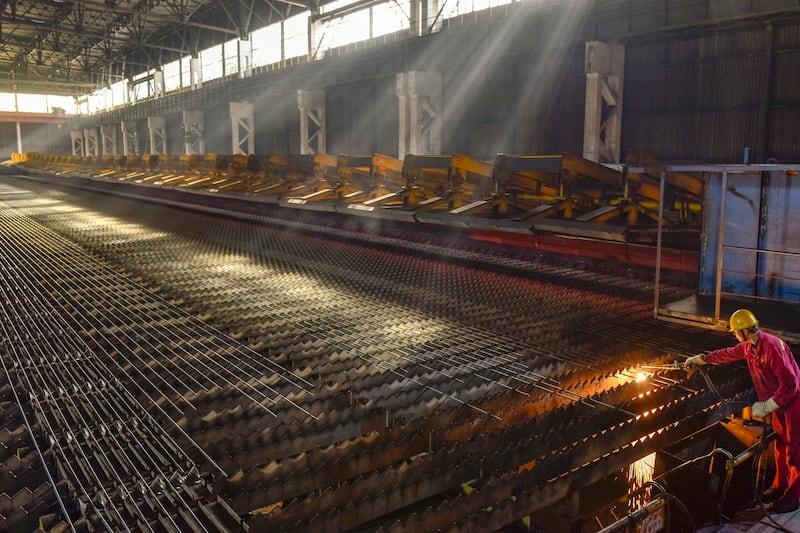Financially strapped local governments and state-owned enterprises pose a risk to China's future economic growth, the ratings agency Moody's said today in a report downgrading the country's credit outlook from stable to negative.
Growing evidence suggests that the central government will be required to shore up the debt-laden entities, creating “broad downside risks to China’s fiscal, economic and institutional strength,” Moody’s said.
Local governments are thought to have accumulated trillions of dollars of debt due to spending during the COVID pandemic and a loss of income due to a troubled real estate market.
Despite the challenges, Moody’s maintained China’s overall credit rating of A1, which it describes as low-risk though not the safest category of investment. Moody’s said the rating reflects its belief in the country’s “financial and institutional resources to manage the transition in an orderly fashion.”
“Its economy's vast size and robust, albeit slowing, potential growth rate, support its high shock absorption capacity,” Moody’s said.
Even so, the outlook downgrade signals some concern about China’s future creditworthiness.
In a statement, China’s Foreign Ministry said it was disappointed in the ratings change and that Moody’s concerns about its growth and financial stability were “unnecessary.”
"In recent years, through the continuous efforts of relevant departments and local governments, China has established a system to prevent and resolve the risks of local government debt,” the ministry said. “The trend of disorderly and illegal borrowing by local governments has been initially curbed, and positive results have been achieved in the disposal of local government debt."

Moody’s projects China’s annual growth rate will be 4% in 2024 and 2025 but average 3.8% from 2026 to 2030, at which time it might drop again to 3.5%.
Derek Scissors, the chief economist at China Beige Book, a firm that analyzes China’s economy for investors, said in an email that the downgrade was to be expected.
“It's a recognition of long-standing conditions, not a new development,” said Scissors, who is also a senior fellow at the free-market think tank American Enterprise Institute in Washington. “I think growth will be faster than Moody's thinks in 2024 and decelerate more than they think after that.”
Fees from local land sales account for nearly 40% of the revenue to local and regional governments. But China’s real-estate sector has been hit hard by overbuilding. One giant, Evergrande, defaulted under massive debt last year, triggering a broader real estate crisis.
Moody’s report said that “the downsizing of the property sector is a major structural shift in China's growth drivers which is ongoing and could represent a more significant drag to China's overall economic growth rate than currently assessed.”
Edited by Tara McKelvey
